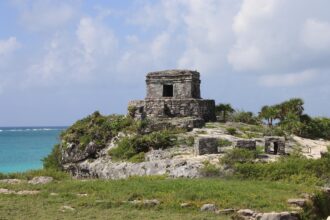Understanding Eco-Friendly Tours in Tulum’s Jungle
Choosing eco-friendly tours in Tulum’s spectacular jungle environment requires careful consideration of various factors. Eco-tourism aims to reduce the carbon footprint and promote sustainable practices while allowing visitors to enjoy the natural beauty and cultural richness. To make informed decisions, it’s essential to understand what constitutes an eco-friendly tour.
Researching Tour Operators
-
Look for Certifications
Ensure the tour operators are certified by recognized eco-tourism organizations such as the Rainforest Alliance or the Global Sustainable Tourism Council. Certification confirms that they adhere to environmentally responsible practices. -
Read Reviews
Investigate customer feedback on platforms such as TripAdvisor, Google Reviews, and eco-tourism forums. Reviews often provide valuable insights into the operator’s commitment to sustainability and the quality of their tours. - Community Involvement
Select operators that actively engage with local communities. Tours should benefit residents via fair wages and support for local businesses. This ensures that the community preserves its culture and environment.
Tour Activities
-
Wildlife Encounters
Choose tours that responsibly promote wildlife observation without disturbing habitats. Ethical tours should prioritize viewing animals in their natural settings, using methods that do not interfere with their behavior or environment. -
Cultural Experiences
Engage with operators providing authentic cultural experiences. These can include visits to local artisans or participation in community workshops, allowing you to understand and appreciate the local customs. - Nature-Based Activities
Look for tours featuring activities such as hiking, bird watching, and kayaking through the jungle. These activities promote a connection to the ecosystem and minimize environmental impacts compared to motorized options.
Sustainable Practices
-
Transportation
Opt for tours that use sustainable transportation options. Biking, walking, or using electric vehicles reduces the carbon footprint compared to traditional vans or buses. If a van is necessary, ensure it is newer, with better fuel efficiency. -
Waste Management
Inquire about the operator’s waste management policies. Leading eco-friendly tours should have practices in place like minimizing single-use plastics, providing recycling options, and ensuring that waste is properly disposed of in accordance with local laws. - Food and Beverage
Choose tours that offer locally sourced food. Supporting local agriculture reduces transportation emissions and promotes the economy. Avoid tours that include disposable utensils or packaging and opt for those that provide reusable or biodegradable options.
Tour Group Size
-
Small Group Tours
Select operators that limit group sizes. Smaller groups tend to leave less impact on the environment and allow for personalized interactions with guides. - Private Tours
If budget allows, consider private tours for an intimate experience. These often facilitate deeper connections with the guide, leading to a more enriching understanding of the ecosystem and its challenges.
Transparency and Communication
-
Ask Questions
A responsible tour operator will welcome inquiries. Ask about their sustainability practices, how they support the local economy, and what steps they take to minimize tourism’s negative impacts. - Tour Length and Itinerary
Evaluate the length of tours carefully. Short, rushed tours may not allow for proper appreciation of the surroundings. Look for itineraries that include ample time for exploration and education.
Participation in Conservation
-
Environmental Monitoring
Look for tours that actively contribute to environmental research or conservation efforts. This could be financial support for local conservation projects or partnerships with environmental NGOs that work to protect the local ecosystem. - Support for Animal Welfare
Avoid tours that exploit animals for entertainment. Ethical tours will not include activities like riding animals for leisure, which can compromise their well-being.
Local Climate Considerations
-
Visit During Off-Peak Seasons
Consider planning your visit during less crowded seasons, such as the rainy season (May to October). This not only enhances your experience but also helps minimize the environmental strain on the area. - Weather and Ecosystem Awareness
Sustainable operators understand local weather patterns and tailor tours accordingly. Make sure your operator adjusts activities to accommodate weather conditions and protect the local ecosystem.
Flexible Booking Policies
- Flexible Cancellation Policies
Look for operators with flexible cancellation policies that accommodate unexpected changes. This helps reduce stress and allows for last-minute adjustments while minimizing losses, aiding in sustainable tourism practices.
Supporting Local Initiatives
-
Workshops and Community Projects
Engage in tours that integrate workshops or community projects where a portion of the revenue goes towards local initiatives. These experiences foster a sense of connection and empowerment within the community. - Cultural Heritage Preservation
Select operators that actively engage in preserving cultural heritage, supporting local traditions, and promoting responsible tourism that uplifts communities.
Educated Guides
-
Knowledgable Tour Guides
Participate in tours led by knowledgeable guides who can educate about the flora, fauna, and cultural significance of the area. Insights from experienced guides can transform a good tour into an extraordinary experience. - Language Proficiency
Ensure guides are fluent in the language you’re comfortable with, enhancing communication and enriching your understanding of the tour content.
Comfort and Safety
-
Health and Safety Protocols
Verify that operators follow health and safety guidelines. This includes adequate training for staff and appropriate responses to emergencies, ensuring a safe and enjoyable excursion. - Equipment Safety Reviews
For activities such as snorkeling or climbing, check the safety of the equipment provided. Responsible operators conduct regular inspections of their gear to adhere to safety standards.
Conclusion on Making Eco-Responsible Choices
Choosing eco-friendly tours in Tulum’s jungle environment is an enriching experience that supports sustainability and the local community. By focusing on environmentally responsible operators, engaging in wildlife-friendly practices, and actively participating in conservation efforts, your jungle adventure will be both enjoyable and beneficial for the ecosystem and its inhabitants. Investing time in research and careful selection of tours ultimately enhances your Tulum experience while ensuring that this jewel of nature is preserved for generations to come.







